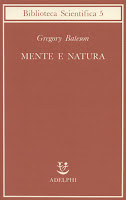Il mio lavoro principale, il mio primo lavoro, quello ufficiale, qui a Insaponata, un lavoro non retribuito, quello per il quale mi trovo impiegato ventiquattro (24) ore su ventiquattro (24), ogni giorno, senza soste, quello che svolgo da sempre, vale a dire dal momento in cui ho raggiunta la cosiddetta capacità naturale, più o meno dai sedici (16) anni in avanti, è quello che mi vede pedissequamente impegnato nell’impedire alle salme mobili che occupano la mia vita biologica di annientarmi definitivamente colla loro biologica visione delle cose; questa visione delle cose, ovviamente una visione biologicamente pragmatica e piatta, ovviamente una visione elementare e vuota, tipica delle persone premorte, animate da bisogni originari, che occupano militarmente la mia vita attraverso corpi ricoperti da divise demenziali, i cui scopi sono sempre e solo scopi materiali, a corto raggio, sempre indecorosi, sempre vergognosi, questa visione fonda e assicura la sua esistenza su due (2) regole tanto rozze, dal mio punto di vista, quanto incredibilmente efficaci: la regola che chiamerò, per comodità, la regola A) statuisce: uno (1) più uno (1) fa sempre due (2); mentre la regola che chiamerò regola B) recita: uno (1) più uno (1) fa due (2) qui e ora; diversamente da quanto accade a me: uno (1) più uno (1) non fa quasi mai due (2). Potrebbe fare uno-emmezzo (1,5) forse due-trequarti (2,75). [...]
Il mio secondo lavoro, che è in rapporto di connessione col primo, anch’esso non retribuito, lavoro che svolgo senza tregua per ventiquattro (24) ore al giorno, a tempo indeterminato, equivale al maldestro e ingenuo tentativo di mantenere in vita alcune mie aspettative in un bidé di provincia chiamato bassopiave, al maldestro e ingenuo tentativo di mantenere in vita alcuni progetti di fuga da un bidé di provincia chiamato bassopiave, una terra, o meglio un territorio, come si usa dire in giro, cioè nei bar e nelle pagine della cronachetta locale, un territorio dimenticato dalla grazia di dio e dagli uomini intelligenti, o meglio, ricordato solo da uomini confezionati o da spericolati coltivatori di clientele, un territorio che ha voluto fare a meno della grazia di dio. Questa terra ha smesso di pensare e comportarsi come si comporterebbe un uomo, non è più una terra, e infatti è divenuta un territorio, non più una terra con gli uomini a conquistarne il decoro e l’onore, e a mantenerne la fertilità a mani nude.
Qui nel pianeta venetorientale degli ex miracolati non abbiamo la grazia e l’energia d’un popolo, una lingua doc, un orgoglio similnazionale, un certo nazionalismo regionale d’origine controllata, una capitale, un giornale, degli statisti o, più semplicemente, una classe dirigente ad un tempo rigorosa e folle o anche solo dotata d’un minimo di coerenza o idealità. Non ce la siamo conquistata, dunque, non possiamo meritarcela. Non c’è nulla di tutto ciò: c’è solo un popolame di mentecatti, oltre ai cosiddetti puitici, la naturale protesi di quella nientitudine in termini d’idealità, o forse no, forse mi sbaglio io, c’è solo della buona gente, qui in Cisalpinia, della gente buona ma piatta. La bontà non basta, però. La bontà non serve a un accidente. La finta bontà non serve a nulla. Non è sufficiente se uno si piscia sotto, se uno non è davvero cinico. Gente impaurita, mi vien da pensare, oppure vaporizzata, sradicata, delocalizzata, bancomattata, che ha arrangiato liberamente la libertà dando sfogo agli istinti per battere il complesso di colpa che deriva dalla pellagra secolare, mai vinta veramente fino in fondo, lavorando diciotto (18) ore al giorno, come se fraccare allo sfinimento come l’uomo di cromagnon per diciotto ore al giorno possa avere un qualche significato meritorio, e così facendo, operando senza tregua diciotto (18) ore al giorno per trecentocinquanta (350) giorni all’anno per dieci (10) anni di fila, approfittando della particolare fortunata congiuntura storico-economica, ha potuto ingrassare molto; i risultati di questa magnada sconcia, della sbueata sgolza, del cosiddetto benessere diffuso, del miracolo, sotto gli occhi di tutti, sono: la totale distruzione della lingua regionale, la totale distruzione della religiosità regionale, la totale distruzione dell’ambiente regionale: si sono persi per sempre lingua, terra, religione. E tutto questo in meno di mezzo secolo. Persa la lingua, ossia i dialetti, oggi a Insaponata si parla il grezzo, un idioma tecnico para-dialettale di consumo, privo di bellezza indigena, totalmente impreciso, perennemente impreciso, involgarito dalla cantilena locale e da sillabe sincopate, buono solo per la sopravvivenza dei consumi di massa, ma senza anima, forza evocativa e un minimo di poetica.
Il grezzo è diventata la lingua ufficiale dello stato etnico del Mesovenetorientale: questa è una parlata fatta esclusivamente di vocali, di o oppure ou, e nessuna consonante; è praticamente la sintesi della sintesi del dialetto delle paludi del seimila avanti cristo bonificate nei priminovecento. Da quando la governatrice di Insaponata e Pratochiuso di Piave, un refettorio per parrocchiani obesi, ha ordinato e ufficializzato il grezzo come lingua distrettuale essa è divenuta l’idioma ufficiale di riferimento, una lingua tecnica che serve unicamente, per volontà istituzionale, a risolvere problemi di carattere pratico: ordinare da magnar e da bevar, domandar el conto, riconoscersi tra grezzi, spiegare a gesti la voglia di orinare all’aperto e di condividere alle sagre l’orinata tra grezzi come unico piacere della vita legalmente concedibile, socialmente gratificante, esprimere una sola e ossessiva considerazione personale che tuttavia, col passar del tempo, è divenuta il fatto più importante: i negri, i negri clandestini e, in generale, gli stranieri di ogni razza e colore che non parlano il grezzo e non riconoscono le radici cristiane dei grezzi, ossia non riconoscono il fatto che la vita della comunità del nuovo stato etnico del veneto è fatta per affermarsi solo colla lengua grezza, gli dei cani, gli dei porci, la fedeltà al contante, al nero, che permette puttane aperitivi e costate di manzo, vanno eliminati o meglio, usati come oggetti di produzione e per la produzione, fino a quando questa ci sarà. I neri non parlando il grezzo non possono integrarsi e ambire a qualche miglioramento nello stile di vita. Sicché il grezzo serve ai rondisti vincenti a guadagnare un bel mucchio di soldi, i soldi del monopoli che servono a finanziare i concorsi della lotteria mesoveneta, le cene medievali e i sempiterni baracconi culinari. I rondisti vincenti sono creature subumane che vanno per la maggiore. A costoro è stata iniettata la democrasia, si è espansa come il poliuretano, ma si tratta solo del diritto di voto, il diritto di voto non è esattamente la democrazia, il diritto di voto è esattamente il diritto di voto, vuol dire che una mandria di analfabeti, mettono la crose colla matita copiativa sulla faccia del candidato pantagruele che ha la stessa faccia insaponificata dell’elettore gargantuà, la stessa famanza, lo stesso odore, stessi vestiti, uguali le scarpe a punta lucidata, morirà della stessa cirrosi epatica o dello stesso bruto mal, in poche parole parla la stessa lingua, vuole le stesse cose, lenzuola di seta, cerchioni in lega, russarsi il culo cogli scartozi di panoccia, mangiare lo stracotto di musso colle mani, pulirsi sulle braghe. Pironi e bancomat. Scorezze e parafanghi da rally. [...]
Lo spritz è la risposta, la nuova eucaristia, 1/3 vinello bianco amabile, 1/3 aperol ovvero campari, 1/3 selz, fettina di limone, ghiaccio, due euro, bevetene tutti, questo è il nuovo sangue arancione versato per la rimozione dei peccati.
I trentacinque (35) bar d’Insaponata di Piave sono disperatamente popolati specialmente nei weekend da questi capannoidi e di queste femminine. Ogni categoria sociale ha il proprio bar, un bar del cazzo in cartongesso, cartongesso, penso, metà cartone, metà gesso, il cartone delle baracche, penso, da dove tutti proveniamo, il gesso che si sfarina come cocaina, penso, quella che tutti aspirano, il bar, il proprio porto franco, il proprio atollo, i propri disperati prosecchi, le disperate bollicine, i disperati vodka-tonic, i disperati spritz al Select, i vinelli più disperatamente strutturati, i rossi importanti anch’essi disperatamente soli.
Il nuovo umanesimo è l’umanesimo della mescita, il rinascimento dell’aperitivo. Non è un caso che si dica l’arte di fare uno spritz. Che cosa dovrebbe d’altronde rimanere dopo la produzione medio-industriale in un’area d’ottantamila (80.000) parrocchiani senza niente attorno, solo asfalto, parcheggi e bar, senza un teatro nel raggio di cinquanta (50) chilometri? Rimane l’alcool. L’affermatività orgogliosa dell’alcoolismo da parte dei parrocchiani medesimi, dei capannoidi. S’ordinano giri e giri d’aperitivi, con disinvoltura, con facce millantatrici, auto-compiacenti, dissolute, giri e giri di birre da far rabbrividire una guardia-parco.









































































